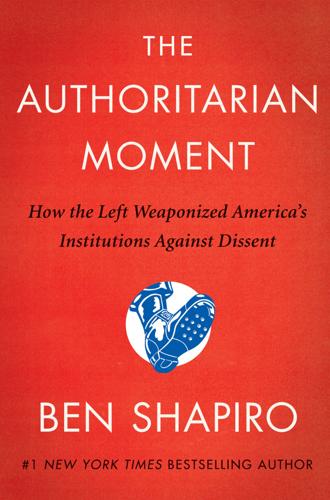
The Authoritarian Moment: How the Left Weaponized America's Institutions Against Dissent
by
Ben Shapiro
Published 26 Jul 2021
But as social media becomes our new shared space, and as our media treat the happenings on social media platforms as the equivalent of real life, social media mobs become real mobs with frightening momentum. THE NEW INFORMATIONAL OLIGOPOLY Our social media oligopoly—cudgeled, wheedled, and massaged into compliance by a rabid media and a censorious Democratic Party—threatens true social authoritarianism at this point. In a free market system, the solution would be to create alternatives. Parler attempted to do just that. Angered at the capricious nature of Twitter’s management, Parler began as an alternative.
…
And alternatives are being actively foreclosed by social media companies determined to invoke their standard as the singular standard, a media that knows it can co-opt those standards, and Democrats who benefit from those standards. After having killed Parler, members of the media have turned their attention to Telegram and Signal, encrypted messaging services. All streams of dissent—or uncontrolled informational streams—must be crushed.55 Perhaps the only good news is that most Americans know they’re being manipulated by the gatekeepers in social media. Fully 82 percent of adults told Pew Research that social media “treat some news organizations differently than others,” 53 percent said that one-sided news was a “very big problem” on social media, and 35 percent worried about “censorship of the news.”
…
Jon Ronson, “How One Stupid Tweet Blew Up Justine Sacco’s Life,” NYTimes.com, February 12, 2015, https://www.nytimes.com/2015/02/15/magazine/how-one-stupid-tweet-ruined-justine-saccos-life.html. 52. Ari Levy, “Trump fans are flocking to the social media app Parler—its CEO is begging liberals to join them,” CNBC.com, June 27, 2020, https://www.cnbc.com/2020/06/27/parler-ceo-wants-liberal-to-join-the-pro-trump-crowd-on-the-app.html. 53. Brian Fung, “Parler has now been booted by Amazon, Apple and Google,” CNN.com, January 11, 2021, https://www.cnn.com/2021/01/09/tech/parler-suspended-apple-app-store/index.html. 54. https://twitter.com/jason_kint/status/1358467793323257857. 55. Brian X. Chen and Kevin Roose, “Are Private Messaging Apps the Next Misinformation Hot Spot?

American Marxism
by
Mark R. Levin
Published 12 Jul 2021
In fact, at a Senate hearing in November 2020, the Democrats on the committee demanded that Big Tech do more, and faster, to silence speech on their platforms.72 Big Tech also went to extraordinary lengths to try to destroy a small, entrepreneurial company, Parler, which was quickly gaining a following of millions of citizens who mostly did not share the ideological bias, political partisanship, and censorship practices of these huge multibillion-dollar global companies. As the Pittsburgh Post-Gazette put it: “The social media site Parler has been suspended from Google’s and Apple’s app stores, and Amazon has stopped providing the company with cloud services, effectively killing the service and prompting Parler to launch a federal lawsuit against the tech giant…. The killing of Parler amounts to a chilling assault on speech…. Social media, like much of the news media, has become a wedge between Americans who are decamping to different platforms along ideological lines in the tens of thousands in the wake of the bans.
…
Big Media use their corporate clout to try to destroy nonconforming news and opinion organizations (e.g., AT&T-owned CNN repeatedly advocates for de-platforming the Fox News Channel and banning its hosts), and, of course, Big Tech does the same against smaller social media businesses. Let us remember that when cable TV and, later, social media were developed, they were celebrated as providing more options and choices for news consumers. Instead, corporate acquisitions and consolidation have led to a relative few corporatists controlling the content and distribution of information throughout the country. This is simply intolerable. Respecting Big Tech, if you use social media, you should find alternatives to the corporate oligarchs. I am not tech savvy. But I know enough to suggest a few options: Parler, MeWe, and Discord’s community forums.
…
Department of Commerce, https://www.slideshare.net/AllumBokhari/ntia-hate-crimes-report-january-2021/1 (April 11, 2021). 71 Ibid. 72 Emily Jacobs, “Democrats demand more censorship from Big Tech bosses,” New York Post, November 18, 2020, https://nypost.com/2020/11/18/democrats-use-big-tech-hearings-to-demand-more-censorship/ (April 11, 2021). 73 “The War on Free Speech,” Pittsburgh Post-Gazette, January 26, 2021, https://www.post-gazette.com/opinion/editorials/2021/01/26/The-war-on-free-speech-Parler-Social-Media-technology/stories/202101140041 (April 11, 2021). 74 Krystal Hur, “Big tech employees rally behind Biden campaign,” Opensecrets.org, January 12, 2021, https://www.opensecrets.org/news/2021/01/big-tech-employees-rally-biden/ (April 11, 2021). 75 Ari Levy, “Here’s the final tally of where tech billionaires donated for the 2020 election,” CNBC, November 2, 2020, https://www.cnbc.com/2020/11/02/tech-billionaire-2020-election-donations-final-tally.html (April 11, 2021). 76 Chuck Ross, “Biden Has Ties to 5 Major Tech Companies,” Daily Caller, January 10, 2021, https://dailycaller.com/2021/01/10/biden-big-tech-apple-facebook-trump-parler/ (April 11, 2021). 77 Ryan Lizza, Daniel Lippman, and Meridith McGraw, “AOC wants to cancel those who worked for Trump.
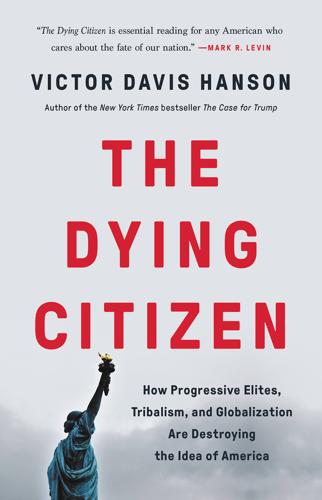
The Dying Citizen: How Progressive Elites, Tribalism, and Globalization Are Destroying the Idea of America
by
Victor Davis Hanson
Published 15 Nov 2021
Emily Ekins, “Poll: 62% of Americans Say They Have Political Views They’re Afraid to Share,” Cato Institute, July 22, 2020, www.cato.org/publications/survey-reports/poll-62-americans-say-they-have-political-views-theyre-afraid-share; Emily Ekins, “Poll: 71% of Americans Say Political Correctness Has Silenced Discussions Society Needs to Have, 58% Have Political Views They’re Afraid to Share,” Cato Institute, October 31, 2017, www.cato.org/blog/poll-71-americans-say-political-correctness-has-silenced-discussions-society-needs-have-58-have. 28. On the defense of exercising social media censorship (before the banning of Trump), see A. Sewer, “Trump’s Warped Definition of Free Speech,” The Atlantic, May 29, 2020, www.theatlantic.com/ideas/archive/2020/05/trumps-warped-definition-free-speech/612316. On the monopolies of Silicon Valley and the attack on Parler, see the interview of A. Kantrowitz and S. Burch, “How Parler Crackdown Could Make ‘Life Miserable’ for Amazon, Google,” The Wrap, January 12, 2021, www.thewrap.com/tech-talk-parler-crackdown-amazon-google-antitrust. Cf. S. Frier, “Bans on Parler and Trump Show Big Tech’s Power over Web Conversation,” Bloomberg, January 10, 2021, www.bloomberg.com/news/articles/2021-01-11/parler-trump-bans-show-big-tech-s-power-over-web-conversation. 29.
…
Whatever one thought about Trump’s quixotic challenges to the November election vote count, he finally conceded defeat. No matter. Trump himself was banned for life from Twitter and Facebook for allegedly using social media to encourage protesters to assemble on January 6 in Washington, DC.20 Amazon, Google, and Apple—three of the top-five market-capitalized corporations in the world—in the same early hours of the same day, without warning and in a coordinated effort, blocked servers and apps used to access their upstart, conservative social media rival Parler. The latter had recently been flooded with millions of new users eager to follow Trump to an alternative platform after he was cancelled by Twitter and Facebook.
…
Such suppression recalled the nineteenth-century cartels, whose monopolies had once spawned progressive muckraking opposition and the passage of antitrust legislation. Twitter’s new rival, Parler—summarily shut down for days and nearly ruined—filed antitrust suits against those who had sought to destroy it. No one could explain why the radical Iranian ayatollah Ali Khamenei could freely tweet about destroying Israel or Antifa could use social media to coordinate its often violent demonstrations, but the president of the United States and some of his supporters were banned from Facebook, Twitter, and a host of other social media platforms. And no one could quite figure out whether Silicon Valley had monopolistically coordinated its anti-Trump efforts after the surety of the Biden victory to destroy a rival who might, in theory, poach seventy million Trump Twitter followers, or because of political differences, or both.
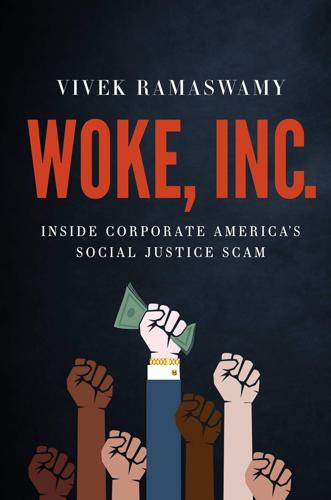
Woke, Inc: Inside Corporate America's Social Justice Scam
by
Vivek Ramaswamy
Published 16 Aug 2021
It was nothing short of a Soviet-style purge of political dissent. Well, doesn’t the free market provide a solution? It did, at least for a hot second, in the form of Parler, a Twitter alternative popular with conservatives. Unlike Big Tech social media incumbents, Parler didn’t harvest user data and didn’t regulate political content. Instead, Parler set out to value, of all things, free speech and open dialogue. Parler was… earnest. Ultimately it paid a hefty price for its naivete. Following the Capitol riot, Parler was blocked from being downloaded from Google’s Play Store, was suspended from Apple’s App Store, and lost access to Amazon Web Services—all based on hackneyed allegations similar to those levied against President Trump.
…
We don’t just segregate ourselves geographically—the Big Sort has gone online too. Social media companies promised to bring people together, but instead they provide echo chambers where like-minded people reinforce each other’s biases. Technology has made it easier than ever for us to travel where we want and talk to whom we want, but it turns out what most of us wanted was to reaffirm our beliefs. Back in 2004, Bishop noticed that we’d been sorting ourselves in physical space, and in the time since, we’ve done the same thing in cyberspace. In 2020, when I joined Parler, the alternative social media site that became popular for its commitment to free speech in the wake of Silicon Valley’s coordinated censorship crusade, I posted something that was critical of woke capitalism.
…
In 2020, when I joined Parler, the alternative social media site that became popular for its commitment to free speech in the wake of Silicon Valley’s coordinated censorship crusade, I posted something that was critical of woke capitalism. One of the first responses I got was “Shut the fuck up, you fucking foreigner.” Meanwhile, Twitter was no better. Users who self-identify as progressives routinely comment “shut up you right-wing Patel” in response to my tweets. My far-right friends gravitate to Parler. My liberal friends view Parler as untouchable and flock to Twitter. In reality they’re both just echo chambers designed to allow different tribes to vent their frustrations. The online sort only accelerates the Big Sort in the real world too. When corporations take sides in America’s partisan culture war, they’re not just signaling their tribe, they’re selling you an easy way to signal yours.
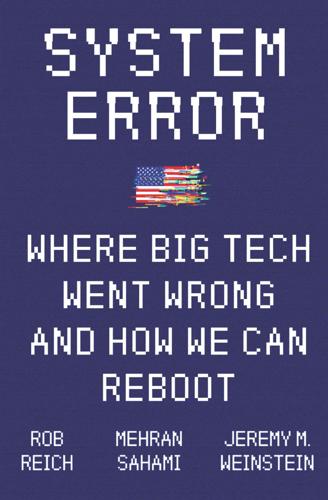
System Error: Where Big Tech Went Wrong and How We Can Reboot
by
Rob Reich
,
Mehran Sahami
and
Jeremy M. Weinstein
Published 6 Sep 2021
Two additional things are different: Francis Fukuyama and Andrew Grotto, “Comparative Media Regulation in the United States and Europe,” in Social Media and Democracy: The State of the Field, Prospects for Reform, edited by Joshua A. Tucker and Nathaniel Persily, SSRC Anxieties of Democracy (Cambridge, UK: Cambridge University Press, 2020), 199–219. the migration to Parler: Stanford Internet Observatory, “Parler’s First 13 Million Users,” January 28, 2021, https://fsi.stanford.edu/news/sio-parler-contours. Google is responsible for over 90 percent: Daisuke Wakabayashi and Tiffany Hsu, “Why Google Backtracked on Its New Search Results Look,” New York Times, January 31, 2020, https://www.nytimes.com/2020/01/31/technology/google-search-results.html.
…
Because the cash incentive was offered at random to people in a large sample, they could use the existence of a cash incentive for some and not for others to figure out the effects of tuning out of Facebook. They found that most forms of polarization were unaffected by a reduction in social media usage, though people not on Facebook did have demonstrably less knowledge about current events. Even if many of our worst fears about social media and polarization are not borne out by the data, the reality is that social media is flush with misinformation and provides an all-too-welcoming home for extremism and hateful rhetoric. And though polarization in our society might be affected by lots of factors beyond social media, the consequences of misinformation and harmful speech can be significant. One major source of pollution in the information ecosystem is misinformation, “claims that contradict or distort common understandings of verifiable facts.”
…
Here’s an example: If a YouTube user were to post a defamatory video, the user could be sued but YouTube could not. Without CDA 230, websites such as Facebook, Twitter, Instagram, and YouTube would have to exercise strong judgment over everything users produce, as if they were newspaper editors—something that is technically difficult these days. In the case of smaller social networking platforms such as Parler, which tout the promotion of free speech and lack both the will and the substantial resources needed to provide large-scale content moderation, CDA 230 serves an even more critical role in providing them legal protection. CDA 230 had its origin in the response to a court case decided one year earlier, Stratton Oakmont, Inc. v.
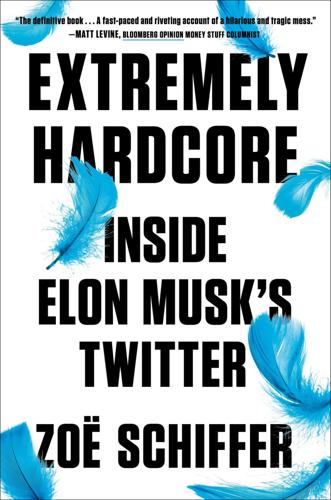
Extremely Hardcore: Inside Elon Musk's Twitter
by
Zoë Schiffer
Published 13 Feb 2024
GO TO NOTE REFERENCE IN TEXT “Twitter is essentially following”: Charlie Warzel, “Twitter Is a Far-Right Social Network,” The Atlantic, May 23, 2023, theatlantic.com/technology/archive/2023/05/elon-musk-ron-desantis-2024-twitter/674149/. GO TO NOTE REFERENCE IN TEXT an “uncancelable” free speech alternative: Todd Spangler, “Parler Shut Down by New Owner: ‘A Twitter Clone’ for Conservatives Is Not a ‘Viable Business,’ ” Variety, April 14, 2023, variety.com/2023/digital/news/parler-shut-down-new-owner-starboard-twitter-clone-conservatives-1235583709/. GO TO NOTE REFERENCE IN TEXT “Amazingly, as of tonight”: Tucker Carlson, Twitter post, May 9 2023, 4:42 p.m., twitter.com/TuckerCarlson/status/1656037032538390530.
…
Like many of Musk’s remarks, the accusation had a grain of truth to it, but the thrust of his argument was misleading. App Store guidelines suggested apps should not include “content that is offensive, insensitive, upsetting, intended to disgust, in exceptionally poor taste, or just plain creepy,” and emphasized the need to protect children. In 2021, Apple booted Parler, a free speech alternative to Twitter, off the App Store for failing to adequately police hate speech and other harmful content. Every few weeks, Twitter submitted an app update to Apple, which the iPhone maker had to approve before it could be released into the wild. After Twitter Blue launched, Apple reached out with pointed questions about impersonations.
…
The platform was reshaping itself into a right-wing social network. “Twitter is essentially following the playbook of platforms like Rumble, which used to be the go-tos for canceled and deplatformed right-wingers seeking a soft landing and the promise of revenue,” explained Charlie Warzel in The Atlantic. A month earlier, Parler, which billed itself as an “uncancelable” free speech alternative to Twitter, shut down. “No reasonable person believes that a Twitter clone just for conservatives is a viable business any more,” its parent company said. Carlson flattered Musk in his announcement. “Amazingly, as of tonight, there aren’t many platforms left that allow free speech.
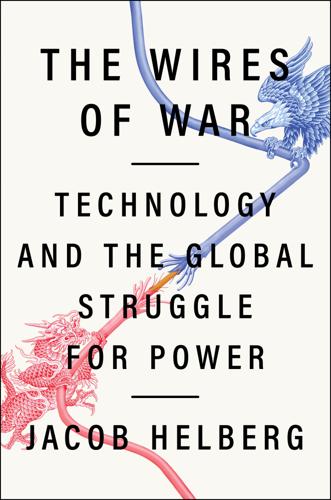
The Wires of War: Technology and the Global Struggle for Power
by
Jacob Helberg
Published 11 Oct 2021
Twitter has said that 300,000 tweets were labeled under their “Civic Integrity Policy,” and that nearly three-quarters of users viewing those tweets saw labels disputing their accuracy.180 According to YouTube, when users searched for content about the election, 88 percent of the videos in their “top-10” results in the United States came from “ ‘authoritative’ sources.”181 More challenging still, though both coasts have become better at counteracting foreign disinformation, the 2020 election accelerated the rise of domestic disinformation. After Biden’s victory, millions of Americans—egged on by Trump—indulged in unwarranted conspiracy theories claiming that Trump had in fact won. Mainstream platforms like Twitter and Facebook accelerated their crackdown on disinformation, but Parler—a social media platform that pitches itself as a freewheeling and unrestricted alternative to such sites—shot to the top of the Apple and Google app stores, as many Trump voters found a new home to circulate unverified claims of ballot stuffing and rigged voting machines.182 Despite all evidence to the contrary, many of these Trumpian claims were repeated at protests and in legal proceedings—and eagerly amplified by Putin and the Chinese Embassy in the United States.183 Several weeks after Biden was officially projected the winner, more than three-quarters of Trump voters attributed his win to voter fraud.184 The shift from combating foreign to domestic disinformation poses real challenges, since it also implies a shift from targeting conduct (which is objective) to targeting content (which is more subjective).
…
Capitol on January 6, 2021, seeking to halt the process certifying Joe Biden as president, Twitter, Facebook, and YouTube suspended Trump from their platforms for inciting violence and violating their civic integrity policies. Apple and Google suspended Parler from their app stores, and Amazon kicked them off their popular cloud hosting service. Deciding where to draw the line on disinformation is a difficult and unenviable task—especially for unelected engineers in Silicon Valley. We still haven’t fully defined how to view social media platforms—is Twitter a newspaper, a public square, a public utility? This conceptual confusion compounds the decision of how to treat disinformation. Many would agree with a news outlet opting not to run an op-ed from someone proven to spread dangerous falsehoods.
…
Officials Warn,” New York Times, October 21, 2020, https://www.nytimes.com/2020/10/21/us/politics/iran-russia-election-interference.html. 173 Ellen Nakashima, “Cyber Command has sought to disrupt the world’s largest botnet, hoping to reduce its potential impact on the election,” Washington Post, October 9, 2020, https://www.washingtonpost.com/national-security/cyber-command-trickbot-disrupt/2020/10/09/19587aae-0a32-11eb-a166-dc429b380d10_story.html. 174 Ellen Nakashima, “U.S. undertook cyber operation against Iran as part of effort to secure the 2020 election,” Washington Post, November 3, 2020, https://www.washingtonpost.com/national-security/cybercom-targets-iran-election-interference/2020/11/03/aa0c9790-1e11-11eb-ba21-f2f001f0554b_story.html. 175 Nakashima, “U.S. undertook cyber operation against Iran as part of effort to secure the 2020 election.” 176 “New Steps to Protect the US Elections,” Facebook, September 3, 2020, https://about.fb.com/news/2020/09/additional-steps-to-protect-the-us-elections/. 177 Adam Rawnsley, “Putin’s Troll Farm Busted Running Sprawling Network of Facebook Pages,” Daily Beast, September 25, 2020, https://www.thedailybeast.com/putins-troll-farm-busted-running-sprawling-network-of-facebook-pages. 178 Shirin Ghaffary, “Facebook is finally cracking down on QAnon,” Vox, August 19, 2020, https://www.vox.com/recode/2020/8/19/21376166/facebook-qanon-take-down-groups-conspiracy-theory. 179 Vijaya Gadde and Kayvon Beykpour, “Additional steps we’re taking ahead of the 2020 US Election,” Twitter, October 9, 2020, https://blog.twitter.com/en_us/topics/company/2020/2020-election-changes.html. 180 Vijaya Gadde and Kayvon Beykpour, “An update on our work around the 2020 US Elections,” Twitter, November 12, 2020, https://blog.twitter.com/en_us/topics/company/2020/2020-election-update.html. 181 Nick Statt, “YouTube defends choice to leave up videos with false election claims,” The Verge, November 12, 2020, https://www.theverge.com/2020/11/12/21562910/youtube-2020-election-trump-misinformation-fake-news-recommendations. 182 Jason Murdock, “Parler Tops App Store Charts As Conservatives Flock to Site After Biden Victory Over Trump,” Newsweek, November 9, 2020, https://www.newsweek.com/parler-tops-app-store-ios-android-charts-conservatives-twitter-biden-trump-election-1545921. 183 Tweet from @ewong, Twitter, December 9, 2020, https://twitter.com/ewong/status/1336742141264072705?s=11. 184 Patrick Murray, “National: More Americans Happy About Trump Loss Than Biden Win,” Monmouth University, November 18, 2020, https://www.monmouth.edu/polling-institute/documents/monmouthpoll_us_111820.pdf/. 185 Sheera Frenkel, “The Rise and Fall of the ‘Stop the Steal’ Facebook Group,” New York Times, November 5, 2020, https://www.nytimes.com/2020/11/05/technology/stop-the-steal-facebook-group.html. 186 Kate Conger, “Twitter Has Labeled 38% of Trump’s Tweets Since Tuesday,” New York Times, November 5, 2020, https://www.nytimes.com/2020/11/05/technology/donald-trump-twitter.html. 187 Jeff Jones, “In Election 2020, how did the media, electoral process fare?
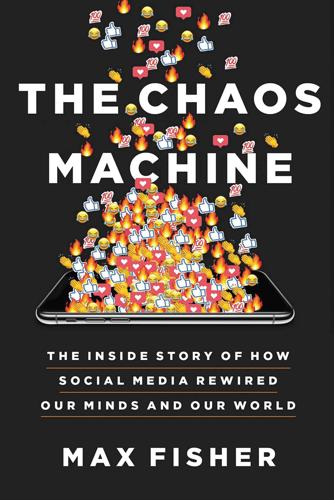
The Chaos Machine: The Inside Story of How Social Media Rewired Our Minds and Our World
by
Max Fisher
Published 5 Sep 2022
“We are a government that came to power on a mandate of free expression,” Harindra Dissanayake, a presidential advisor in Sri Lanka, told Amanda. He used social media himself. It had pained him to shut off access, if only for a few days. At their best, he said, social media platforms “made things more transparent, gave voice to people who did not have voices.” But the past months, he said, had destroyed his faith in the technology he’d once credited with bringing his country democracy. “This idea of social media as an open, equal platform is a complete lie,” he now believed. “There is no editor, there is the algorithm.” He stressed that Sri Lanka’s divisions predated social media. But these platforms, he warned, brought out the very worst in a society, amplifying its extremes in ways that had never before been possible.
…
The child-abusing Democratic cabal was about to be exposed, probably executed. Trump would call in the military, and God-fearing militias had better be there to back him up. “#Patriots need to be as violent as BLM/Antifa! That’s our go-ahead!!” a member of the Proud Boys, a white-nationalist group, wrote on Parler, a Twitter clone that had grown favored by the far right after bans by mainstream platforms. On TheDonald, a chat site modeled on the now-banned Reddit subsection, more than 80 percent of discussions referring to the January 6 event included overt calls for violence. Some posted maps of the Capitol building, marking out tunnels and entrances.
…
Some posted maps of the Capitol building, marking out tunnels and entrances. By December’s end, many users were converging around a plan. Some would bring guns and explosives to Washington. Others would instigate a crowd large enough to overrun Capitol police. They would storm the building, stopping the vote certification by force. And then, as one Parler user wrote, “We’re gonna kill Congress.” An entire universe of Facebook groups, rising as one, promoted Trump’s rally as the great battle they had been prepping for. Flyer-like memes, ubiquitous on the platform, urged attendance, often bearing militia slogans indicating the start of an armed revolt.
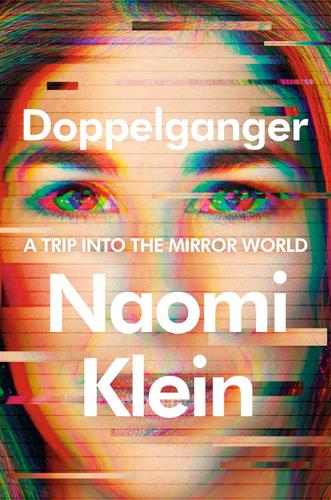
Doppelganger: A Trip Into the Mirror World
by
Naomi Klein
Published 11 Sep 2023
Sign up for the copycat site Gettr, the right-wing Twitter rival started by the former Trump aide Jason Miller: “Unlike the Silicon Valley oligarchs, Gettr will NEVER sell your data.” (Wolf has nearly 200,000 followers there, more than on Twitter before she got booted.) Censored by YouTube? Get an account on Rumble. Shadow banned on Instagram? Try Parler. “Speak freely,” the company urges, on “the premier social media app guided by the First Amendment.” Did GoFundMe refuse to distribute the money you raised to support your favorite Freedom Convoy, claiming the funds would be used to support violence and harassment? Don’t worry, GiveSendGo, “The #1 Free Christian Fundraising Site,” will distribute the cash, along with a prayer, no questions asked.
…
“she had to find a new world”: Ian Burrell, “Naomi Wolf’s Slide from Feminist, Democratic Party Icon to the ‘Conspiracist Whirlpool,’” Business Insider, June 5, 2021. “left the country”: Naomi Wolf, “A Lost Small Town,” Outspoken with Dr Naomi Wolf, Substack, October 26, 2022. “Unlike the Silicon Valley oligarchs”: Gettr @GETTRofficial, tweet, September 23, 2021, Twitter. “Speak freely”: “Parler: About This App,” Google Play, updated August 28, 2022. “crushing you every day”: Steve Bannon, host, “Independence Day!!; Naomi Wolf’s Coup,” War Room: Pandemic (podcast), episode 1,506, December 23, 2021, at 24:55, posted on Rumble. “mass formation psychosis”: “No Evidence of Pandemic ‘Mass Formation Psychosis,’ Say Experts Speaking to Reuters,” Reuters Fact Check, January 7, 2022.
…
Klein MSCHF MSNBC Muirhead, Russell Mulllins, Garth multiplayer gaming multiple personality disorder Murdoch, Iris Musk, Elon Muslims Mussolini, Benito MyPillow Nakba naming systems Naomi: author’s feelings about name; in Old Testament NASA Nation, The National Health Service (NHS) National Institute of Allergy and Infectious Diseases nationalism, inclusive National Security Agency Native Americans; see also Indigenous people Natural Causes (Ehrenreich) Nazi Germany; Austria annexed by; autistic people in; children as viewed in; class solidarity replaced with racial solidarity in; colonialism and; disabled people in; Gemüt concept in; health culture in; Hitler in; IBM and; lands and people conquered by; Paris’s liberation from; vaccine programs in; Volk collective in Nazi Germany, Jews in; anti-Semitic conspiracy theories and; Covid mandate analogies to; “eternal Jew” caricature and; Kristallnacht and; Nuremberg Laws and; yellow stars worn by; see also Holocaust Nazis, neo- neoliberalism Nestlé Netflix neurodiversity Neurotribes (Silberman) New Deal New Democratic Party (NDP); Avi Lewis as candidate of Newman, Kevin New Republic, The Newsmax New Statesman, The New York City New Yorker, The New York Post New York Times, The Next Revolution, The Nicholas II Nike 9/11 attacks 1984 (Orwell) NoiseCat, Julian Brave No Logo (Klein) Northern Ireland Northrup, Christiane NPR Nunes, Rodrigo Obama, Barack Obama, Michelle O’Brien, Kate Occupy Wall Street (OWS) oil Old Testament; Naomi in oligarchy One Day at a Time On Property (Walcott) Operation Shylock (Roth) opioid crisis Orbán, Viktor Organisation for Economic Co-operation and Development Origins of Totalitarianism, The (Arendt) Orwell, George O’Shea, Brian othering Ottawa Otto, Mike Ottoman Empire Our Bodies, Ourselves (Boston Women’s Health Book Collective) Outrages (Wolf) Oxford Union Paglia, Camille Pakistan Palestinians “Pandemic Is a Portal, The” (Roy) pandemics; Covid, see Covid pandemic Paradise Lost (Milton) Parasite Parks, Rosa Parler Patel, Raj patents Patreon Patriot Act patriotism pattern recognition PayPal PBS Peck, Raoul pedophilia Peele, Jordan Pegasus Pelosi, Nancy and Paul Pennycook, Gordon People’s Party Peters, Tom Pew Research Pfizer pharmaceutical companies; Pfizer; see also Covid vaccines; vaccines Philippines Picture of Dorian Gray, The (Wilde) Pim, Bedford Pinochet, Augusto pipikism Plandemic plutocracy Poe, Edgar Allan pogroms police murders of Black people Poor People’s Campaign populism Portnoy’s Complaint (Roth) Potter, David poverty powell, john a.

Four Battlegrounds
by
Paul Scharre
Published 18 Jan 2023
As Twitter and Facebook increased their content moderation to crack down on disinformation, far-right users flocked to alternatives like Parler and Gab. Fragmenting the social media ecosystem so that users fall into even more extreme bubbles is hardly an effective long-term solution. Regulation is needed to establish uniform guidelines and create an environment that preserves free expression while guarding against manipulative behavior. The United States and other democratic nations also need to win the global competition for social app dominance. The United States has benefited for decades from the soft power afforded by Hollywood’s global reach, spreading American values and ideals around the world. Social media is far more consequential.
…
Audience,” Washington Post, September 15, 2019, https://www.washingtonpost.com/technology/2019/09/15/tiktoks-beijing-roots-fuel-censorship-suspicion-it-builds-huge-us-audience/. 148Houston Rockets basketball team: Ben Thompson, “The China Cultural Clash,” Stratechery (blog), October 8, 2019, https://stratechery.com/2019/the-china-cultural-clash/. 148propaganda videos about Xinjiang: Ryan, Fritz, and Impiombato, TikTok and WeChat, 15–17. 148“highly controversial topics”: Alex Hern, “Revealed: How TikTok Censors Videos That Do Not Please Beijing,” The Guardian, September 25, 2019, https://www.theguardian.com/technology/2019/sep/25/revealed-how-tiktok-censors-videos-that-do-not-please-beijing. 148“The old guidelines in question are outdated”: Hern, “Revealed: How TikTok Censors Videos That Do Not Please Beijing.” 148ByteDance, like any other Chinese company, must comply: Thompson, “The TikTok War”; Wang, “Targeting TikTok’s Privacy Alone Misses a Larger Issue.” 149“technology must be led by the socialist core value”: David Bandurski, “Tech Shame in the ‘New Era,’” China Media Project, April 11, 2018, https://chinamediaproject.org/2018/04/11/tech-shame-in-the-new-era/. 149alternatives like Parler and Gab: Mike Isaac and Kellen Browning, “Fact-Checked on Facebook and Twitter, Conservatives Switch Their Apps,” New York Times, November 11, 2020, https://www.nytimes.com/2020/11/11/technology/parler-rumble-newsmax.html. 150“platforms are different from steel”: Eric Schmidt, interview by author, June 15, 2020. 150Conversative politicians have claimed for years—without evidence: Elle Hunt, “Facebook to Change Trending Topics After Investigation into Bias Claims,” The Guardian, May 23, 2016, https://www.theguardian.com/technology/2016/may/24/facebook-changes-trending-topics-anti-conservative-bias; John D.
…
Bots are in many ways a small part of online disinformation, and bot network takedowns are just one part of social media companies’ broader efforts to counter manipulative information campaigns. Twitter and Facebook have removed thousands of accounts linked to influence operations from both state and non-state groups around the world. Yet efforts by malign actors to manipulate social media persist. With 4.1 billion users worldwide—over half the world’s population—the contest to control information on social media has massive consequences. Social media has become such a dominant force in the information environment that it is easy to forget how new it is. Facebook, the largest social media platform in the world with 2.7 billion active users, was created in 2004 and only opened to the public in 2006.

Spies, Lies, and Algorithms: The History and Future of American Intelligence
by
Amy B. Zegart
Published 6 Nov 2021
Capitol to prevent congressional certification of the 2020 presidential election, causing the deaths of five people, online sleuths immediately started mining images and video posted on social media to help law enforcement agencies identify the perpetrators. One anonymous college student even created a website called Faces of the Riot. Using widely available facial detection software, the student scanned hundreds of videos and thousands of pictures shared by rioters and others on the social media site Parler and extracted images of those who may have been involved in the Capitol siege.28 The sheer volume of online data today is so staggering, it’s hard to comprehend: in 2019, Internet users posted 500 million tweets, sent 294 billion emails, and posted 350 million photos on Facebook every day.29 Some estimate that the amount of information on earth is doubling every two years.30 This kind of publicly available information is called open-source intelligence and it is becoming increasingly valuable.
…
Intelligence Community concluded, and a bipartisan Senate Intelligence Committee investigation agreed, that Putin’s aim was to undermine American democracy and tilt the 2016 presidential election in favor of Republican candidate Donald Trump.24 Or as former CIA Deputy Director David Cohen more colorfully put it, “They wanted Donald Trump to win, they wanted Hillary to lose, but most of all they just wanted to fuck with us.”25 American intelligence agencies quickly detected many parts of Russia’s unfolding election interference efforts and warned President Obama,26 but they never saw the social media operation coming.27 A month before the election, Secretary of Homeland Security Jeh Johnson and Director of National Intelligence James Clapper issued a rare public warning. Social media was not even mentioned.28 Johnson later said that Russia’s social media operation “was something … that we were just beginning to see.”29 Clapper wrote in his memoir that “in the summer of 2015, it would never have occurred to us that low-level Russian intelligence officers might be posing as Americans on social media.”30 The Intelligence Community would not understand the full magnitude of Russia’s social media operation until much later.31 Russia’s interference in the 2016 presidential election marked the dawn of a new era in cyber warfare and a moment of reckoning for American intelligence agencies.
…
Domo, “Data Never Sleeps 7.0,” https://web-assets.domo.com/blog/wp-content/uploads/2019/07/data-never-sleeps-7-896kb.jpg (accessed January 17, 2021). 27. Zegart and Morell, “Spies, lies, and algorithms.” 28. Jason Murdock, “What is Faces of the Riot? Website features people at Capitol siege seen in Parler videos,” Newsweek, January 25, 2021. 29. Jardins, “How much data is generated each day?” 30. Editorial Team, “The exponential growth of data,” insideBigData, February 16, 2020, https://insidebigdata.com/2017/02/16/the-exponential-growth-of-data/ (accessed September 25, 2020). 31. Zegart and Morell, “Spies, lies, and algorithms,” 90–91. 32.
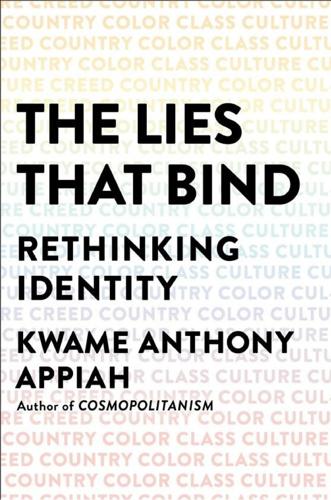
The Lies That Bind: Rethinking Identity
by
Kwame Anthony Appiah
Published 27 Aug 2018
Thompson, “Editor’s Introduction,” in Pierre Bourdieu, Language and Symbolic Power (Cambridge: Polity Press, 1991), 12. 15.Pierre Bourdieu, The Logic of Practice (Stanford: Stanford University Press, 1980), 69–70; Thompson, in Bourdieu, Language and Symbolic Power, 13. 16.“. . . un nouveau parler des intellectuels, un peu hésitant, voire bredouillant, interrogatif (‘non?’) et entrecoupé”; “. . . l’ancien usage professoral (avec ses périodes, ses imparfaits du subjonctif, etc.),” Pierre Bourdieu, Ce que parler veut dire: L’économie des échanges linguistiques (Paris: Fayard, 1982), 56. 17.The Encyclopedia of African-American Popular Culture, ed. Jesse Carney Smith (Santa Barbara, CA: Greenwood, 2011), 3:1089. 18.Bourdieu, Language and Symbolic Power, 86–89. 19.Thompson, in Bourdieu, Language and Symbolic Power, 17–18. 20.Claude Steele, Whistling Vivaldi: And Other Clues to How Stereotypes Affect Us (New York: W.
…
In the wake of the NTUC official’s bad-tempered Facebook posts, the secretary of an Inter-Racial and Religious Confidence Circle filed a complaint with the police, who visited the offending party and issued a warning; taking the hint, she moved back to Australia, where she was born.24 This is a high price to pay for an irritable posting on the web, but the intensity of the response reflects Singaporean sensitivities. The police don’t have to scan Singaporean social media for moments of racial prejudice: citizens who support the nation’s policies report them eagerly to the authorities. And so, as you’d expect, sometimes remarks about other groups that seem less obviously bigoted can also land you in trouble. The one-race-one-mother-tongue policy has also had some unfortunate consequences.
…
Only about 3 percent of the children of the precariat get a college education.33 But between these two classes, Savage identified five distinct groups, clusters of financial, social, and cultural capital, which are not easily ranked against each other: emergent service workers, like chefs and production assistants, who go to gigs, play sports, and use gyms and social media; a traditional working class, like truck drivers and office cleaners, who mostly don’t do these things; a class of newly affluent workers; a technical middle class; and an established middle class, who work in the professions and in upper management. These groups don’t have a shared sense of what activities confer standing—reading versus computer games, classical versus contemporary popular music, cricket versus soccer, and so on—and the relative prestige of their occupations is also far from agreed upon.

The Undertow: Scenes From a Slow Civil War
by
Jeff Sharlet
Published 21 Mar 2023
The simplest memes and saddest for those who actually cared for her, show a younger, less angry Ashli in her uniform, with say her name in block letters, the wrenching of that phrase from its Black context erased through repetition until her earnest partisans came to believe hers was, in a sense, the first murder of the rev olution. Crispus Attucks born again as a White woman. Woman is become warrior (read: male), even as warrior is victim, stabbed in the back by liberalism. An account on the right-wing social media site Parler depicts Ashli as an armored, avenging angel; a Twitter account called We Are Ashli Babbitt features an avatar of Blind Justice holding scales above the words “in her other hand, is a sword.” The banner on this account features Malcolm X, claiming his militance for the White woman’s memory, as if “by any means necessary” was a battle cry for a White-supremacist coup attempt.
…
This is not true, but it reveals something about the construction of intellectual authority within the insurrectionist Right. It is based on a ragged democratization of knowledge, a protestant rejection of academic expertise, the idea that unmediated truth is available to us all through the invisible archive of chat groups and YouTube and Parler. That is, social media, the most mediated human interaction we have yet conceived. They’re not completely wrong—the turn toward primary sources is in one sense a democratization. Imagine you’re Ashli Babbitt, inclined toward knowledge of the world, alert to the way such knowing can shape your life. At seventeen you join the Air Force because you know about 9/11.
…
Ashli compared to George Floyd, by those who acknowledge Floyd was murdered and say they simply want “equal justice” for the White woman; and by those who say Floyd deserved what he got, and from this conclude Ashli’s innocence, as if Floyd’s murder, six months before hers, was somehow payback for her death by the gun of a Black cop. On social media there’s an image of an oil painting of Ashli falling, her MAGA cap flying (she did not wear one), an American flag fluttering (the flag she wore like a cape bore only Trump’s name). The simplest memes and saddest for those who actually cared for her, show a younger, less angry Ashli in her uniform, with say her name in block letters, the wrenching of that phrase from its Black context erased through repetition until her earnest partisans came to believe hers was, in a sense, the first murder of the rev olution.
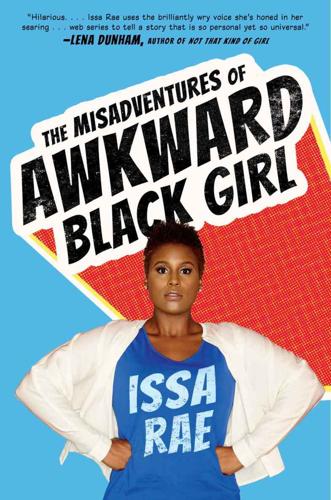
The Misadventures of Awkward Black Girl
by
Issa Rae
Published 10 Feb 2015
Both soldiers exited the Jeep with urgency, long rifles strapped to their backs. “Lan le?” Moise tried to ask in Wolof, a sign of informality. The police weren’t having that. They spoke in French. “Qu’est-ce que vous faites?” they asked. “On parle. Il faisait chaud en bas.” “Vous faisiez plus que parler, viens avec nous.” The soldier demanded that we go with him. Moise shook his head. I spoke up in my worst French accent. “Monsieur . . . qu’est-ce qu’on a fait? Je ne viens pas d’ici. Je suis Americaine.” “Madame, vous s’embrasser en public. Nous faisons pas ça ici. Donc, je vais vous amener en prison.”
…
I responded: “We should talk about this in the morning when you get some sleep, Grumpy McGrumperson.” And then she promptly responded: “We should talk about this when you get some empathy, you whorephobic asshole.” And that’s when all hell and confusion broke loose, because I could have sworn that what I’d expressed fit the definition of social media empathy. I had looked at her time line, seen that she was sleep-deprived, and responded to her. But apparently it was insensitive empathy—if that even exists. And then she blocked me and publicly added me to her ever-growing list of people that she hates. She compared the oppression of being a disabled sex worker to the oppression of being a person of color.
…
If it weren’t for YouTube, I would still be at studios trying to convince executives that Awkward Black Girls really do exist. If it weren’t for YouTube, I would have been indefinitely discouraged by the network executive who suggested that actress/video girl/Lil Wayne’s baby’s mother, Lauren London, would be a great fit for the title character of a cable version of Awkward Black Girl. If it weren’t for social media, I don’t know that black women would even be a fully formed blip on the radar. If it weren’t for internet forums and fan pages, communities of dark women wouldn’t be empowered by their natural hair in a media society that tells them their hair should be straightened and their skin should be lighter.

Longshot
by
David Heath
Published 18 Jan 2022
One survey in 2021 found that 68% of Americans trusted Fauci, but not the remaining 32%, many of whom vilify him with unfounded and absurd allegations of profiteering off the vaccines or even concocting the virus. Sixty-two percent of people who don’t trust Fauci get their “news” from partisan sources such as Newsmax, OAN, Parler, and Gateway Pundit.16 At a Trump campaign rally hours before Election Day, a crowd in Miami chanted “Fire Fauci.” Trump played along: “Don’t tell anybody but let me wait until a little bit after the election.” The crowd cheered.17 Sadly, the public reaction to the vaccine as well as to the pandemic itself has become absurdly political.
…
The virus was disproportionately lethal for those communities; African Americans die of COVID-19 at nearly three times the rate of white Americans. It also was important to show that the vaccine was safe for all, a detail often neglected in clinical trials. Moderna relented and slowed enrollment for a while. Its recruiter bought social media ads targeted to Black and Latino users. Slaoui joined a virtual town hall meeting with the Rainbow PUSH Coalition, headed by civil rights icon Jesse Jackson. “Frankly, developing a vaccine not used in the population or in a fraction of the population is the same as having no vaccine,” Slaoui said at the September 24 meeting.
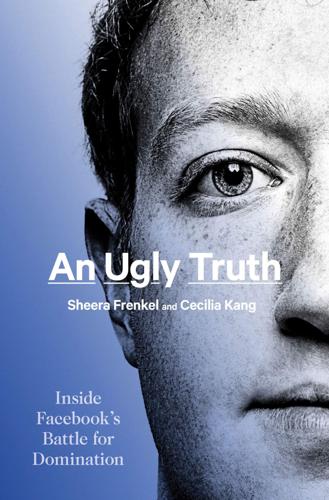
An Ugly Truth: Inside Facebook's Battle for Domination
by
Sheera Frenkel
and
Cecilia Kang
Published 12 Jul 2021
Highlight what Facebook has done to improve discourse on the platform and remove hate speech, Sandberg was told. Outline the huge efforts being made. When asked about the events that had led to the siege on January 6, Sandberg suggested that the blame lay elsewhere, on new social media companies that had become home to the far right, such as Parler and Gab. “I think these events were largely organized on platforms that don’t have our abilities to stop hate, don’t have our standards, and don’t have our transparency,” she said.10 It was a quote that was picked up by news outlets across the world. Outraged members of Congress and researchers who studied right-wing groups accused Facebook of abdicating responsibility.
…
Facebook had thrown a lit match onto decades of simmering racial tensions in Myanmar and had then turned the other way when activists pointed to the smoke slowly choking the country. In March 2018, the United Nations’ independent fact-finding mission in Myanmar told reporters that social media had played a “determining role” in the genocide. Facebook had “substantively contributed to the level of acrimony and dissension and conflict,” Marzuki Darusman, chairman of the UN mission there, said. “Hate speech is certainly of course a part of that. As far as the Myanmar situation is concerned, social media is Facebook, and Facebook is social media,” he said.1 Human rights officials estimated that the genocide carried out by Burmese soldiers resulted in the killing of more than 24,000 Rohingya.
…
On November 1, after months of oblique references to the divisive Russian-backed ads, the House Intelligence Committee showed samples of the ads during its hearing with the general counsels for Facebook, Twitter, and Google. Legislative aides enlarged images of the ads and mounted them on poster boards propped up around the hearing room. Schiff’s opening remarks got straight to the point. “Today, you will see a representative sample of those ads, and we will ask the social media companies what they know about the full extent of Russian use of social media, why it took them so long to discover this abuse of their platforms, and what they intend to do about it to protect our country from this malign influence in the future.” Schiff and Conaway then directed attention to the ads displayed around the room. One ad, from an account called “Being Patriotic,” showed a photo of six police officers carrying the casket of a fallen colleague.

Groundswell: Winning in a World Transformed by Social Technologies
by
Charlene Li
and
Josh Bernoff
Published 23 May 2011
The company will be measuring not just volume, but metrics like improvements in Web searches and commerce driven. It’s run centrally, but not by a huge social media staff. Home Depot’s senior manager of social media, Sarah Molinari, has a staff of five. Two of them manage this community. This is typical of a mature social organization; the central “social media” department consists of only a few coordinating employees who concentrate on things like policy and training. Rather than taking over everything social, the social media staff try to get initiative to come from all across the organization. Social is accelerating at Home Depot and not just for customer-facing applications.
…
(Tom Schmitz, SEO and Social Media Strategist, Portent Interactive, Seattle, Washington) “For me Groundswell represents the first approach to social media for professionals. Whenever I’m asked about a book to read and really understand social media I always recommend Groundswell as a ‘must’ first option. Groundswell is the best book to establish your social media ‘foundations.’ ” (Tristán Elósegui, Online Marketing Manager, Secuoyas, Madrid, Spain) “I finished reading the [first edition of the] book just yesterday. It is amazing how the trends you described are still up-to-date after three years: many companies are conscious that dialogue with their clients is more and more important, but they are afraid of using social media in an open manner.”
…
These companies need another, simpler way to tap into their customers’ desires. They should just ask customers how they can be better, as Crédit Mutuel did. CASE STUDY crédit mutuel: asking your customers for ideas Crédit Mutuel is a French regional cooperative bank with 10 million customers. Its slogan is la banque à qui parler (“the bank you can talk to”). Recently, the company was testing an ad campaign on a focus group. Respondents thought the slogan was hollow. “What do you mean, the bank you can talk to?” they asked. “How can we talk to you? And if we do talk to you, what happens next?” The amazing thing about this story—and the reason that Crédit Mutuel lives up to its slogan—is this: the bank decided it would listen.

What the F: What Swearing Reveals About Our Language, Our Brains, and Ourselves
by
Benjamin K. Bergen
Published 12 Sep 2016
Retrieved from http://news.travel.aol.com/2010/07/26/dangerous-body-language-abroad. Liuzza, R. M. (1994). The Old English version of the gospels. New York: Oxford University Press. Lordat, J. (1843). Analyse de la parole, pour servir à la théorie de divers cas d’alalie et de paralalie (de mutisme et d’imperfection du parler) que les nosologistes ont mal connus. Montpellier, FR: L. Castel. Loy, J. W., and Elvogue, J. F. (1970). Racial segregation in American sport. International Review for the Sociology of Sport, 5(1), 5–24. Lussier, C. (June 27, 2015). LSU professor fired for using salty language in classroom claims she’s ‘witch hunt’ victim, plans suit.
…
But things have started to change, in large part because of changes in public language norms. The highly regulated public airwaves don’t carry the bulk of public communication as they once did. First cable television and then the Internet have created a Wild West for words, where the true will of the people has its way. And if social media are any indication, the people want to be able to swear. And to hear swearing. And to read swearing. As the public has become more accustomed to profanity, taboo words have started to make their way more prominently into mainstream science. And that’s where we are now. And that’s why it’s time for this book.
…
Even assuming that you have a good innovation, which satisfies a particular linguistic niche and is intrinsically promising, that doesn’t guarantee it will spread throughout a population. Changes disperse through a language community in somewhat predictable ways. They spread first among people who talk to each other most and especially those who identify as belonging to the same social groups. We can quantify this in studies of how linguistic innovations spread over social media. For instance, one recent paper looked at what predicted whether a new word used by people in one city would spread to other cities.12 The researchers found that cities closer to each other are more likely to share new words and, in addition, that similar socioeconomic and ethnic makeups increase the likelihood that a change will spread between populations.

The Intelligence Trap: Revolutionise Your Thinking and Make Wiser Decisions
by
David Robson
Published 7 Mar 2019
A study by Francesca Gino at Harvard University, for instance, asked trainees at an IT centre in Bangalore to devote just fifteen minutes a day to writing and reflecting on the lessons they had learnt, while drawing out the more intuitive elements of their daily tasks. After eleven days, she found that they had improved their performance by 23 per cent, compared to participants who had spent the same time actively practising their skills.38 Your daily commute may be the obvious period to engage your mind in this way. Comprenez-vous cette phrase? Parler dans une langue étrangère modifie l’attitude de l’individu, le rendant plus rationnel et plus sage! We will shortly see how reflective thinking can potentially save lives. But if you are lucky enough to be bilingual – or willing to learn – you can add one final strategy to your new decision-making toolkit – called the foreign language effect.
…
Pennycook has since built on those findings, with one study receiving particularly widespread attention, including an Ig Nobel Award for research ‘that first makes you laugh, then makes you think’. The study in question examined the faux inspirational, ‘pseudo-profound bullshit’ that people often post on social media. To measure people’s credulity, Pennycook asked participants to rate the profundity of various nonsense statements. These included random, made-up combinations of words with vaguely spiritual connotations, such as ‘Hidden meaning transforms unparalleled abstract beauty’. The participants also saw real tweets by Deepak Chopra – a New Age guru and champion of so-called ‘quantum healing’ with more than twenty New York Times bestsellers to his name.
…
Sure enough, the participants with lower CRT scores reported seeing greater meaning in these pseudo-profound statements, compared to people with a more analytical mindset.26 Pennycook has since explored whether this ‘bullshit receptivity’ also leaves us vulnerable to fake news – unfounded claims, often disguised as real news stories, that percolate through social media. Following the discussions of fake news during the 2016 presidential election, he exposed hundreds of participants to a range of headlines – some of which had been independently verified and fact-checked as being true, others as false. The stories were balanced equally between those that were favourable for Democrats and those that were favourable to Republicans.
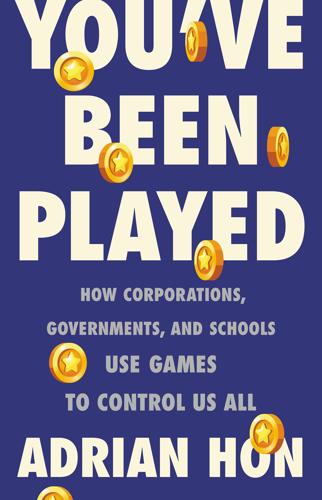
You've Been Played: How Corporations, Governments, and Schools Use Games to Control Us All
by
Adrian Hon
Published 14 Sep 2022
Gill, a financial analyst, denied any improper or illegal activity such as deliberately encouraging people to buy the stock for his own gain, arguing he had simply provided sober financial advice: “Hedge funds and other Wall Street firms have teams of analysts working together to compile research and critique investment ideas, while individual investors have not had that advantage. Social media platforms like YouTube, Twitter, and WallStreetBets on Reddit are leveling the playing field. In a year of quarantines and COVID, engaging with other investors on social media was a safe way to socialize. We had fun.”74 Gill wasn’t interested in whether Robinhood was gamified. The GameStop short squeeze could have happened without Robinhood, but it couldn’t have happened without social media—and it was the gamification of social media that focused attention so acutely on the GameStop trade. It’s not odd or even necessarily harmful for people brought up with games to think of the world as a game and themselves as players.
…
“Managing Harmful Conspiracy Theories on YouTube,” YouTube Official Blog, YouTube, October 15, 2020, https://blog.youtube/news-and-events/harmful-conspiracy-theories-youtube; Ben Collins and Brandy Zadrozny, “Twitter Bans 7,000 QAnon Accounts, Limits 150,000 Others as Part of Broad Crackdown,” NBC News, updated July 21, 2020, www.nbcnews.com/tech/tech-news/twitter-bans-7-000-qanon-accounts-limits-150-000-others-n1234541; “An Update to How We Address Movements and Organizations Tied to Violence,” Facebook, Meta, updated November 9, 2021, https://about.fb.com/news/2020/08/addressing-movements-and-organizations-tied-to-violence. 36. Will Bedingfield, “Deplatforming Works, But It’s Not Enough,” Wired, January 15, 2021, www.wired.co.uk/article/deplatforming-parler-bans-qanon. 37. “The Numbers,” Lostpedia, accessed November 28, 2021, https://lostpedia.fandom.com/wiki/The_Numbers. 38. Dan Hon (@hondanhon), “re the content generation problem for ‘regular’ ARGs I mentioned above. For every ARG I’ve been involved in and ones my friends have been involved in, communities always consume/complete/burn through content faster than you can make it, when you’re doing a narrative-based game.”
…
Reporting on the mass suicide, the Seattle Times found it necessary to point out “creating a web page is ‘easier than standing at airports or parks or street corners in Berkeley handing out brochures.’”1 Since then, the internet has become home to countless new conspiracy theories, and unlike Heaven’s Gate, which began offline in the 1970s, they were born in the real-time ferment of newsgroups, chat rooms, forums, and social media. Most new conspiracy theories have made little lasting mark given the fierce competition for attention online. The exceptions, however, have been damaging enough, particularly when they’ve been amplified by politicians and celebrities on social media—like the far-right QAnon conspiracy theory, responsible in part for the storming of the US Capitol Building in 2021. The most popular modern conspiracy theories have gained purchase not only due to their famous boosters and the polarised political environment but because they have genuinely participatory online communities that can feel engaging, meaningful, and even fun.
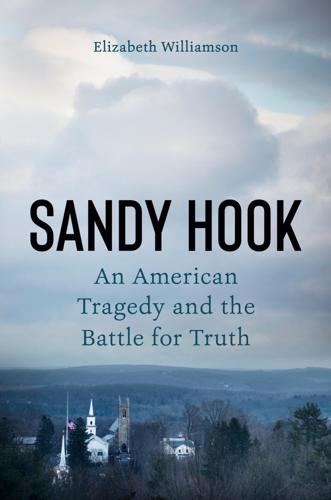
Sandy Hook: An American Tragedy and the Battle for Truth
by
Elizabeth Williamson
Published 8 Mar 2022
Sued for his role in that violence, Spencer told a judge in 2020 that he was having so much trouble raising money online he couldn’t afford a lawyer.[13] Spencer’s National Policy Institute has closed. He lives in Montana, shunned even by his neighbors.[14] To be sure, deplatforming is a pretty blunt weapon. Platforms take ages to do it, it creates “free speech” martyrs, and it can drive extremists onto anything-goes platforms like Gab and Parler, where they can become further radicalized. Experts argue for a finer-grained approach, like imposing time delays between the submission and appearance of a post; disabling the comments function to avoid its becoming a misinformation forum; and, perhaps most important, disabling recommendation algorithms for those accounts so that false content isn’t pumped into the feeds of susceptible people.
…
By the end of 2021, that had belatedly begun to change.[11] It’s no accident that Alex Jones failed to make it into the Disinformation Dozen. Deplatformed in 2018 and 2019, his social media presence remains a faint shadow of what it was, despite constant efforts to sneak back on. By late 2021 less than 1 percent of all traffic to Infowars’ website came from social media, according to an analysis for the Times by Similarweb,[12] an internet tracking company. Deplatforming blunts misinformation superspreaders’ influence and access to funding. White nationalist Richard Spencer, who rode Trump-era bigotry to stardom, had his social media accounts yanked in the aftermath of the 2017 neo-Nazi violence in Charlottesville.
…
“The reaction to Virginia Tech was much the same as the reaction to Sandy Hook. That this could happen was beyond comprehension, that someone could shoot your children down in cold blood,” Haas told me. “We didn’t have the disinformation campaigns and the fuel that social media platforms generally give them.” In 2007, the major social media platforms hosted only a fraction of the users they did just five years later, when Sandy Hook ignited millions of posts pushing false claims. Facebook, by far the largest social platform, had twenty million global users in 2007, compared with more than a billion in December 2012.
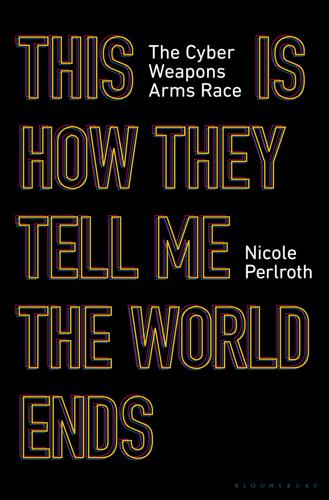
This Is How They Tell Me the World Ends: The Cyberweapons Arms Race
by
Nicole Perlroth
Published 9 Feb 2021
As of this writing, we are exactly one week out from November 3 and Trump has yet to concede. Trump’s calls that the election was “rigged,” of widespread voter “fraud,” of suspicious “glitches” have only intensified. Even when Twitter slaps a warning on the president’s tweets, conservative sites like Breitbart, the Federalist, and newer, conservative-friendly social media platforms like Parler carry his message loud and far. On one side of the country, hundreds of Trump’s supporters are lined up outside a poll center in Arizona yelling, “Count the votes!” while maskless protesters in Michigan scream, “Stop the count!” In Atlanta, the president’s son is calling on supporters to fight “to the death.”
…
And on the very real possibility that Russia’s 2016 hack of our election systems was a mere trial run for 2020, and Russia’s continued efforts to evade social media controls by renting legitimate accounts and using VPNs, see Matthew Rosenberg, Nicole Perlroth, David E. Sanger, “ ‘Chaos Is the Point’: Russian Hackers and Trolls Grow Stealthier in 2020,” New York Times, January 10, 2020. For more on Russia’s continued meddling in American debates on guns, immigration and race, see Kevin Roose, “Facebook Grapples with a Maturing Adversary in Election Meddling,” New York Times, August 1, 2018. For a more granular look at Russia’s social media impersonation tactics, see my June 2020 article in the Times about Russia’s role in spewing a divisive conspiracy theory during the Iowa caucus: Perlroth, “A Conspiracy Made in America May Have Been Spread by Russia,” June 15, 2020.
…
But for all the shock and outrage those programs churned up on cable television and on Capitol Hill, it was becoming apparent that Americans were missing something bigger. The documents were littered with references to NSA backdoors in nearly every piece of commercial hardware and software on the market. The agency appeared to have acquired a vast library of invisible backdoors into almost every major app, social media platform, server, router, firewall, antivirus software, iPhone, Android phone, BlackBerry phone, laptop, desktop, and operating system. In the hacking world, these invisible backdoors have sci-fi names: they call them zero-days (or 0 days), pronounced “oh-days.” Zero-day is one of those cyber terms like infosec and man-in-the-middle attack that security professionals throw around to make it all too easy for the rest of us to tune them out.
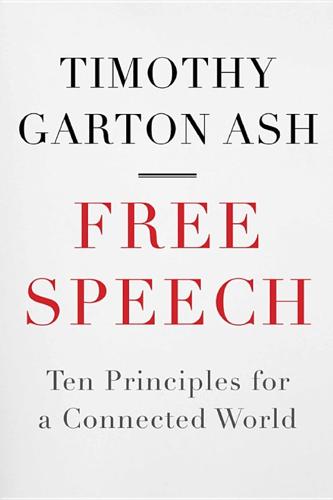
Free Speech: Ten Principles for a Connected World
by
Timothy Garton Ash
Published 23 May 2016
Today’s counterparts are the self-made rules of private powers such as Facebook, Google and Twitter. Perhaps the most telling example of self-restraint is parliament. Harking back to ancient Athens, the special freedom of speech in a democratic parliament is one of the oldest established free speech rights. The very word ‘parliament’ has its roots in the French parler—to speak. A parliament is a place of speaking. A century before France’s Declaration of the Rights of Man and Citizen offered a more comprehensive and egalitarian article on free speech, England’s 1689 Bill of Rights proclaimed ‘that the freedom of speech and debates or proceedings in Parliament ought not to be impeached or questioned in any court or place out of Parliament’.47 Yet the British parliament, like other parliaments, has elaborate rules and conventions governing what may or may not be said by members in its chambers.
…
A major Harvard University study, which collected more than 11 million online posts inside the firewall, argues that the size and sophistication of the Chinese censorship operation is ‘unprecedented in recorded world history’. It found that in 2011 some 13 percent of social media posts were censored. Estimates of the number of employees in the many agencies of internet control range from 20,000 to 50,000—and that’s just for the internet, not for all media, publishing and propaganda. Individual online platforms have their own ‘monitoring departments’, with up to 1,000 in-house censors for the largest of them. When the Harvard research team established its own social media platform inside China, it was advised to have two or three in-house censors for every 50,000 users.
…
Should there be a new offence of searching for extraneous material?67 The attorney general, a minister in the government headed by David Cameron, had just issued a new warning to people to be careful what they said about ongoing court cases on social media, otherwise they might be liable to prosecution for contempt of court.68 Meanwhile, a high-profile case was rollicking the tabloids and social media as the celebrity food writer and TV personality Nigella Lawson, who had just spectacularly split up with her also well-known husband, Charles Saatchi, appeared in court as a prosecution witness against two of their former staff, the Grillo sisters, accused of fraud.

Elon Musk
by
Walter Isaacson
Published 11 Sep 2023
On talk radio and cable TV, there were separate information sources for progressives and conservatives. By pushing away right-wingers, the content moderators at Twitter, more than 90 percent of whom, he believed, were progressive Democrats, might be creating a similar Balkanization of social media. “We want to prevent a world in which people split off into their own echo chambers on social media, like going to Parler or Truth Social,” he said. “We want to have one place where people with different viewpoints can interact. That would be a good thing for civilization.” It was a noble sentiment, but he would end up undermining that important mission with statements and tweets that ended up chasing off progressives and mainstream media types to other social networks.
…
“Dude, you’ve never been on a board, so you don’t know how much this is going to suck for you,” he said. “You tell people what you think, and then they smile and nod and ignore you.” Kimbal thought that it would be better for his brother to start his own social media platform based on the blockchain. Perhaps it could include a payment system using Dogecoin, Elon mused. After brunch, he sent Kimbal a few texts fleshing out the idea for “a blockchain social media system that does both payments and short text messages like Twitter.” Because there would be no central server, “there’d be no throat to choke, so free speech is guaranteed.” The other option, Elon said, was not merely to join the board of Twitter but to buy it.
…
He would never become an on-air pitchman for his products, like Lee Iacocca or Richard Branson, nor be a moth attracted to TV interviews. He would occasionally appear at conferences and sit still for magazine profiles, but he felt more comfortable spouting off on Twitter or holding court on a podcast. A master of memes, he had a clever instinct about how to garner free publicity by courting controversy and jousting on social media, though he could brood for years about slights. One constant was his sensitivity about getting credit. His blood boiled if anyone falsely implied that he had succeeded because of inherited wealth or claimed that he didn’t deserve to be called a founder of one of the companies he helped to start.